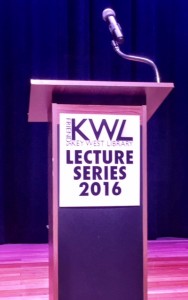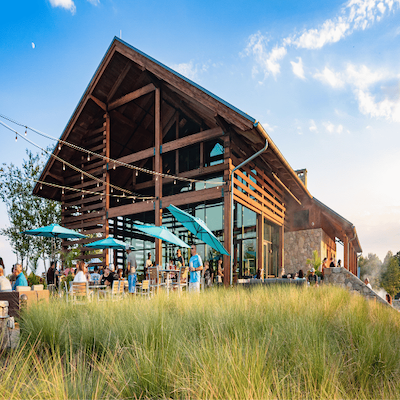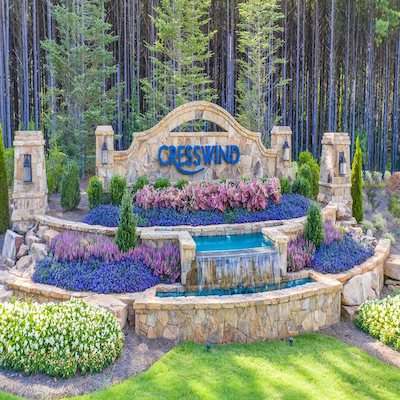Staying Busy All Day: Why Not Expand Your Mind And Have Fun Too!
Category: Baby Boomer Retirement Issues
January 19, 2016 — The 4th leg of last week’s Retirement Plan on a 3 X 5 Index Card was the question: How will you stay busy all day? The point seemed to resonate with many folks. Some have great plans and never expect a dull moment, others are clearly worried that the close of their working days will mean the end of mental stimulation. Today’s article focuses on how lifelong learning programs help hundreds of thousands of retirees keep their minds sharp while learning all kinds of interesting and useful stuff.
We know of at least 4 great ways to get involved in lifelong learning programs, and there are undoubtedly more too. If you are retired, check out the possibilities in your community. If you are still trying to find your best place to retire, research what type of lifelong learning exists in the locations you are considering, before you pull the trigger.
![]()
1. Osher Lifetime Learning Institutes
The biggest and most obvious program for lifelong learning comes from the Osher Lifelong Learning Institute (OLLI). A relative newcomer to the field (2001), it has had phenomenal success. It now operates on the campuses of 119 institutions of higher education from Maine to Hawaii and Alaska, with a National Resource Center at Northwestern University.
While there is no set curriculum, these are some of the common OLLI features: Non-credit educational programs specifically designed for seasoned adults aged 50 and older; support from the leadership of the university or college; a diverse repertoire of intellectually stimulating courses; and volunteer leadership. Generally admission is first come, first served, although some programs are more selective. Tuition is low or free after you pay a modest fee to join the OLLI. Many are taught by its members or volunteers. Some include field trips. And for those of you still smarting from your last formal learning experience, there are generally no tests or attendance taking (whew!).
From Southern Barbecue to Shakespeare and Brain Disease
The most fascinating aspect of OSHER programs is the creativity and the range of courses offered. We looked at a few course catalogs and were amazed by the offerings – from the whimsical to the practical – so many sound so appealing. Here are just a few examples:
– Introduction to Baking
– The History of Southern Barbecue
– Mad about These Movies
– Introduction to Letterpress Printing and Papermaking
– The Cold War
– Spanish
– What Makes You Sick
– Celebrating Shakespeare
etc., etc,. etc.
Below are links to 2 OSHER programs:
– Osher Lifelong Learning Institute at Vanderbilt University
Osher Lifelong Learning Institute at the University of Alabama (OLLI)
This is the link to the List of Participating OSHER Lifelong Learning Institutes across the country.
2. College and Community College Programs
Similar to the OSHER program many colleges, universities, and community colleges offer programs to retirees. Some colleges allow a certain number of senior students to audit classes at no or a greatly reduced fee, which is another great perk of living in a university town.
University Based Retirement Communities are another way to get access to lifelong learning. Many universities such as Penn State, Michigan, the University of Alabama, Florida, and others have affiliated retirement communities on or near their campuses. Residents in these facilities, many of them Continuing Care Retirement Communities (CCRCs), have access to college classes and facilities. Particularly for alumni who already have a relationship with their alma mater, they can be very interesting places to live. See University Based Retirement Communities.
Although community colleges are increasingly focusing on helping local people get the training they need to enter the employment market (which might work for you too!), they also offer a range of classes aimed at general interests. Here is a link to the curriculum from the Austin (TX) Community College. As you can see, some of the classes are in areas that many baby boomers would be interested in: arts and crafts, horticulture, home and gardening, sewing, writing and fine arts, photography, etc.
3. Roadscholar Programs
You might remember this organization from its former name, Elderhostel. Rebranded as Roadscholar, this dynamic organization has an unbelievable list of programs where you learn and travel at the same time. The range goes from programs offered just down the block to destinations all over the world. With every conceivable type of offering, they are definitely worth checking out. 
A few of the most popular programs currently featured on their website include: Hiking Death Valley, Sicily, the Best of the Rockies by Rail, and St. Augustine (FL): 450 Years of History Comes Alive. Roadscholar offers learning adventures from birding to food and wine, history, national parks, history, etc. Some people love the Roadscholar experience so much they go on multiple programs a year.
We even learned at the Roadscholar website that there is scholarship program. If you want to go on a trip and can’t afford it, you might be eligible for financial aid, thanks to generous donations.

4. Local Adult Education and Libraries, etc.
Many localities have strong adult education programs that offer a full array of classes. You might have taken one – your editor’s family got their safe boating certificates from such a class. We also took a fun landscape architecture class. Usually taught by local experts, they can be interesting and provide a social outlet too. As local libraries continue to evolve in the digital age, offering interesting programs and speakers has become more important to their mission. While not often a formal “class”, these cultural events do provide lifetime learning and stimulation. See local newspapers and websites to find out what is available in your area.
More about lifelong learning and college town retirements
Should You Be Applying to a College Town for Retirement (A 3 part series)
Comments? Are you taking formal lifelong learning classes, or some other type of educational enrichment? What types of programs have you found most useful. Please share your experiences in the Comments section below.






Comments on "Staying Busy All Day: Why Not Expand Your Mind And Have Fun Too!"
Jan Cullinane says:
Here is one site that is free, fun, does good for others, and stimulates your mind: www.freerice.com.
For each correct definition you choose from a multiple-choice vocabulary quiz (and you can control the difficulty level), 10 grains of rice are donated to the needy through the World Food Programme. The rice is paid for by the advertisers on the site.
Here's the background from snopes.com (a site that explores "urban myths"): http://www.snopes.com/inboxer/charity/freerice.asp
Talk about food for thought! Give it a try.
Jan Cullinane, author, The Single Woman's Guide to Retirement (AARP/Wiley)
LS says:
For those not living near a college that participates in the Osher program, another option is online courses. There are thousands of courses offered, some by major universities, that are little or no cost. Just do an online search for online courses; free online courses, online university courses, etc. Some of the sites include: Udemy; CreativeLive; Coursera; Duolingo; Class Central; Open Culture; and CrunchBase.
Sandie says:
The Osher program at the University of Richmond (osher.richmond.edu) is outstanding. In addition to a very wide variety of course offerings, it provides an opportunity to meet people with similar interests in the same phase of life.
Kate says:
LS - Very good suggestion. I love CourseRA.org's free on-line classes from renowned professors (and I'm still working). I took a few weeks' course in nuclear power, and it's been a very, very long time since high school physics LOL. I struggled and sweated, but managed to get through all of the on-line classes and tests and earn the certificate. There was a huge sense of accomplishment. My next class from them was a lot lighter (marriage in the movies), and I'm about to take a course on rock n' roll -- I just couln't face another science class, but it's nice to know there's such a wide range of free options! I'm really looking forward to taking lots of classes in retirement.
DeyErmand says:
Thanks Kate, I am excited about the www.CourseRA.orgs online classes. They have Business classes!
ella says:
I have to smile when i read about talking academic courses. I received my Bachelor's degree at age 54 and my Mastor's degree three years later. I am so over taking courses! (But i did enjoy the school work while i was taking it. :)
Shumidog says:
There are a lot of options here beyond academic work, Community Colleges have vocational courses, auto repair for one. Mine has a pottery course I've been looking at (I like working with my hands) EGA (Embroidery Guild) chapters have lessons at their meeting (BTW this is a mixed group, men as well as women enjoy stitching.) ANG (American Needlepoint) has a project each year broken into 12 segments on their website as well as a lot of other info. Both have a yearly gathering with courses which moves to different parts of the country. It may take a year or two to get close enough if you want to drive. These are the ones I've enjoyed and I don't do really large gatherings. So try something different that just sounds good, it may turn out that you like it.
Lily says:
I am always excited to see colleges providing free or low-cost courses for retired people. My frequent disappointment is that most of the courses offered here in St. Augustine meet in the evening. Many retired people have difficulty driving at night and there may not be public transportation available. I know on-line courses are an option, but you miss the opportunity to meet and interact with others which enriches the learning.
I know Flagler College might find it difficult to open up a daytime slot for elder learning but perhaps colleges could consider running thesw courses in the latter part of the afternoon when its is easier to see and when senior transportation is more readily available.
Tessa says:
Jan, Love the freerice.com site. Thanks!
ella says:
Yes, Jan. Great fun! Makes me feel smart; a miracle! :)
Caps says:
Ella.... Can I say.......? "You go girl!" Congratulations too!
ella says:
Thanks, Caps. Try it, you'll like it!
:) Your friend,
Kate says:
Also love the freerice.com site - thanks for the tip. Got to level 42 on the vocabulary test and hit a word I didnt know. Very humbling when I saw there are 60 levels. I'm afraid to try the other subjects LOL.
ella says:
Hmmm, did't realize there are levels
Thanks, Kate!
Caps says:
I'll never say never! I loved the ten years I spent in college. Gets harder on the ROI during your middle years, however.
Shelley says:
I would love to go to a Medical training course here in town but I refuse to take out student loans to do so. I know I could get a Pell Grant but after that, I don't know where to get money.
Ed says:
Check out www.edx.org and www.coursera.org for education courses taught by the best colleges. You can audit courses for free or pay a small fee 50 -100 dollars for a verified certificate. Courses are streamed, some start/end on certain dates, others you can start "on demand". If you want to complete a certificate, check out their certificate offerings at www.edx.org/xseries and www.coursera.org/specializations. On edx, I completed a three course certificate offering on the Civil War taught by Eric Foner, Columbia University professor an world renowned historian. Great sites!
Ed says:
Another great site is https://www.futurelearn.com/courses.
Louise says:
Admin. It would be nice if some of the websites could be gathered up and placed somewhere on the blog for future reference. Maybe called: Reference Materials. There is some good information that will just get lost in all the mish mash of comments.
Staci says:
"The Great Courses" has courses on DVDs taught by highly acclaimed college professors on every imaginable subject. Watch for when they go on sale. They make great gifts !!
My biggest challenge is my unwillingness to commit my time to Anything too rigid and time constraining. I guess after working all these years, I'm enjoying the freedom to do what I want to do, when I want to do it.
Sandie says:
The Osher program, offered at universities around the country, is a way to learn new things and meet people. My husband and I participate at the University of Richmond and thoroughly enjoy it. In addition to learning opportunites, they have interest groups for travel, plays, bridge, hiking, and so forth. The cost is quite reasonable.
MaryNB says:
These are great ideas. I would also like to find out more about any college or university learning programs for Seniors. There used to be a summer program for seniors at colleges and universities around the country that involved groups of seniors staying in college dorms and taking courses, allowing seniors to explore topics as well as different parts of the country. Does anyone know if this still exists? Many years ago, I had a friend who taught one of these peograms in the summer at a local college.
HEF says:
MaryNB - It was called "Elder Hostel" and has morphed into Road Scholar. (see them at Roadscholar.org ) They mostly have accompanied trips - in the US and international. They look like a lot of fun.
We aren't quite retired yet but are looking forward to also participating in the Osher Center for Life Long Learning courses at the local college. My parents took a number of classes at Univ. of Delaware - several had trips available to round out the course. They had a ball!
First We are also hoping to move then volunteer, take local classes and get some exercise so I figure we will be busy enough. Perhaps a few months of R&R to start :-)
Barbara says:
MaryNB and HEF- Thanks so much for bring up Road Scholar. I went to the website and really got sucked in! There's so much there I'd absolutely love to do. Bookmarking the site for future reference. Thanks.